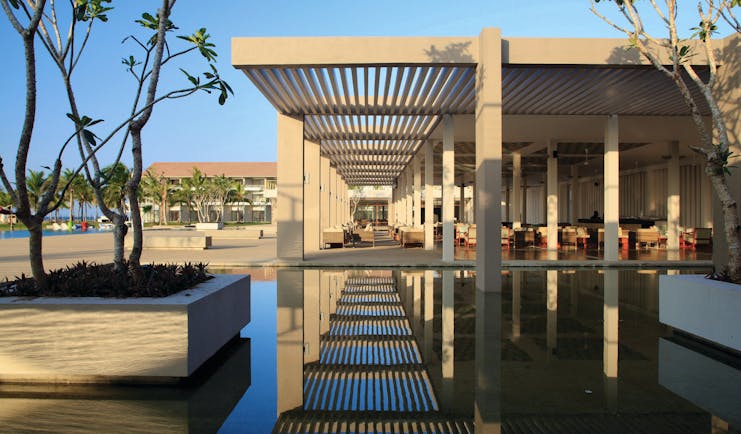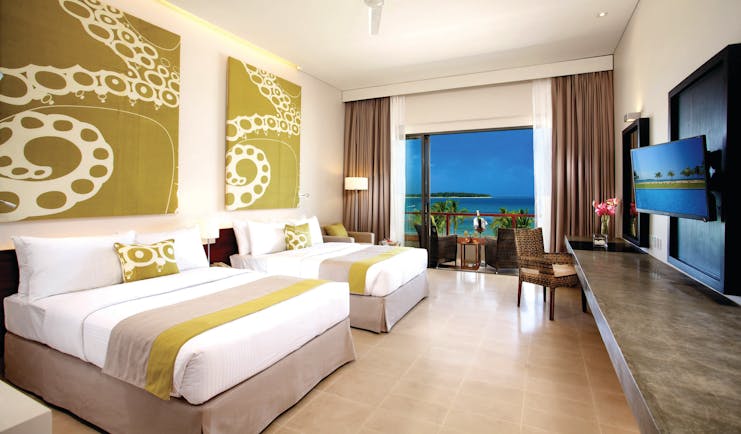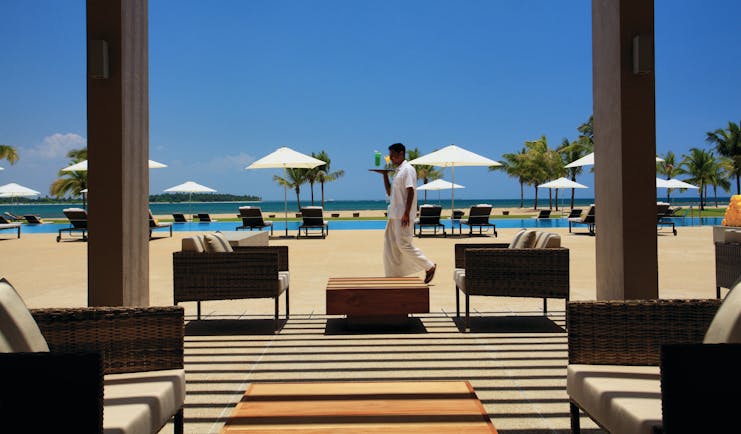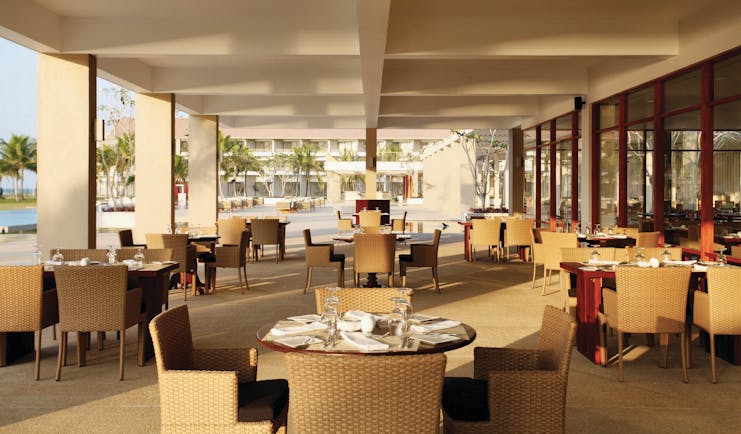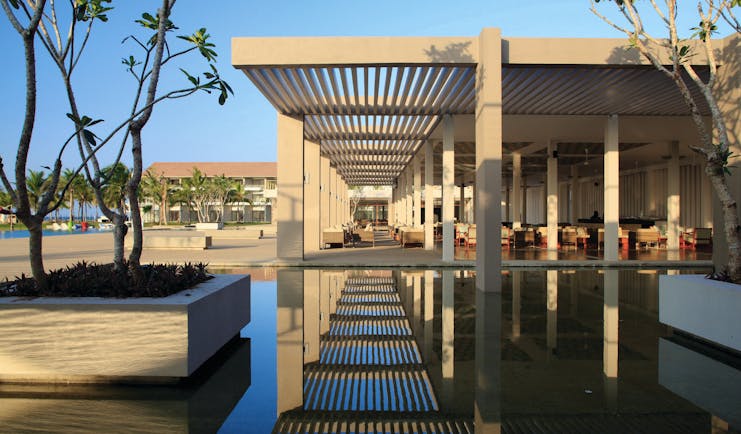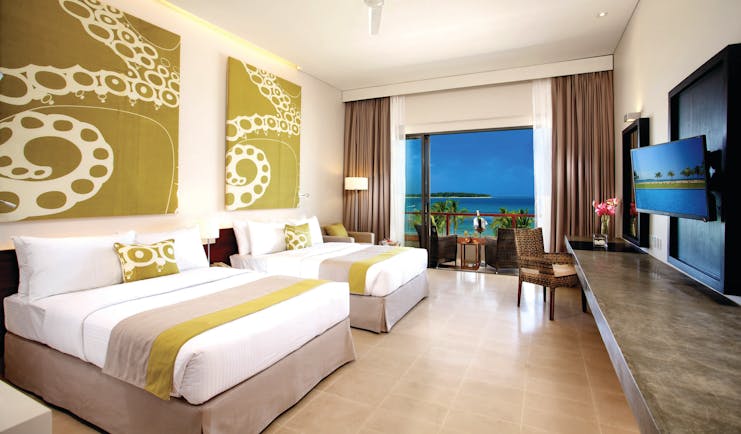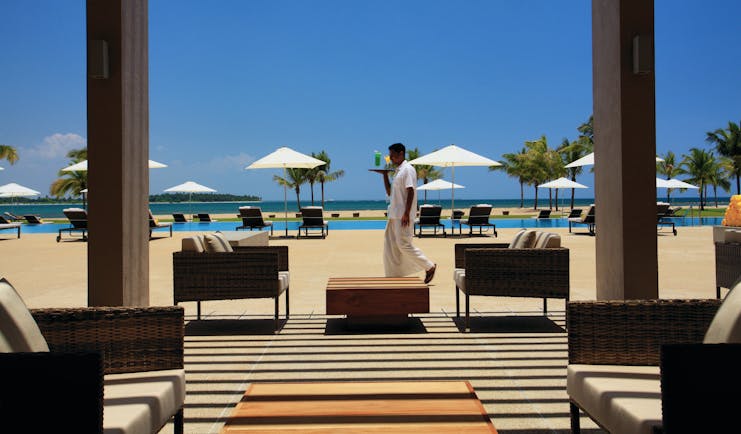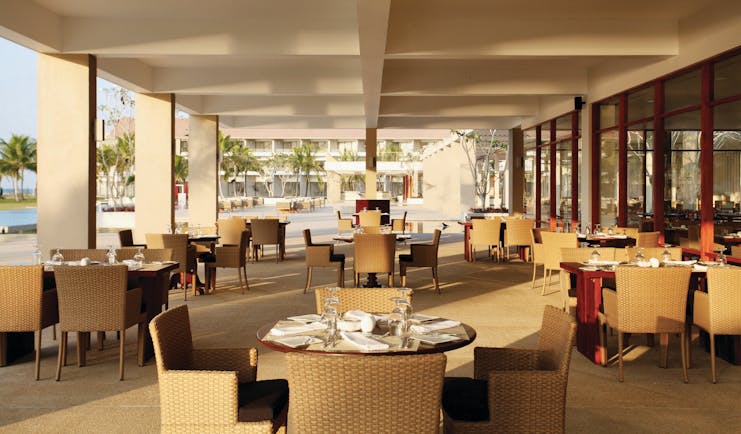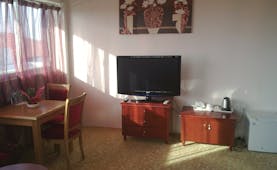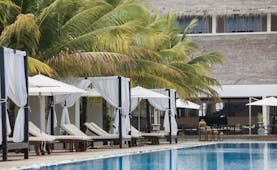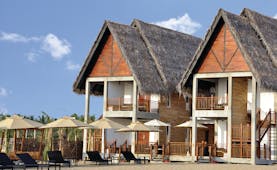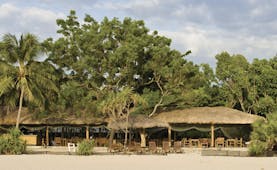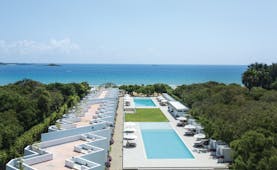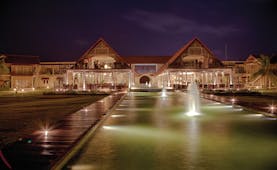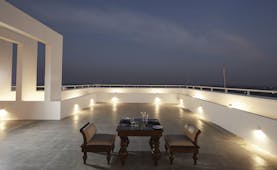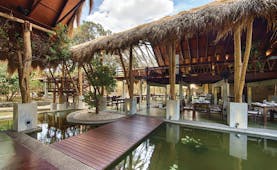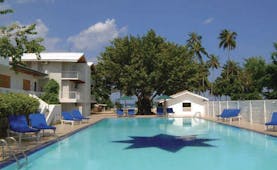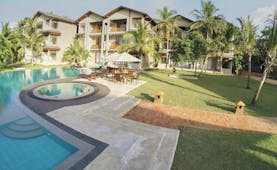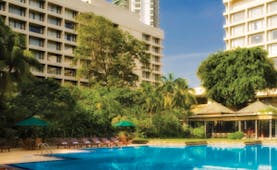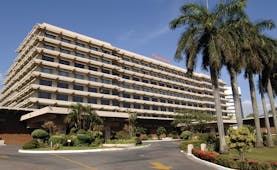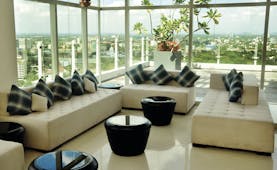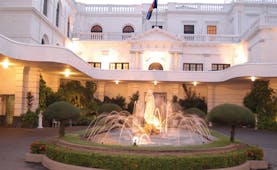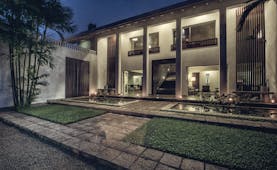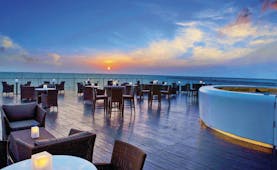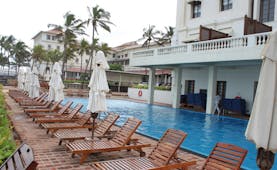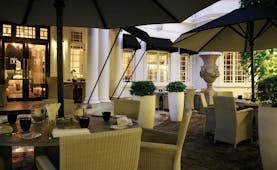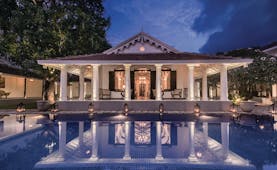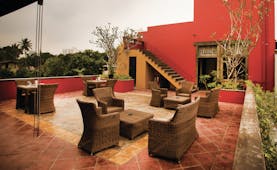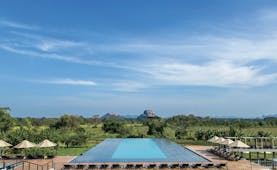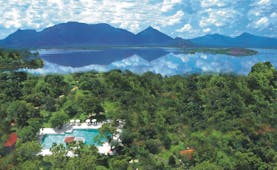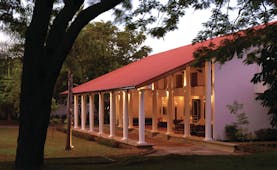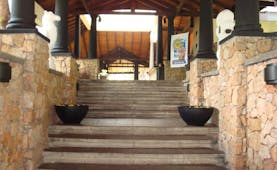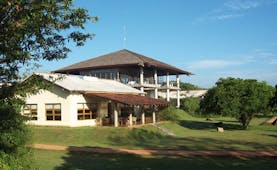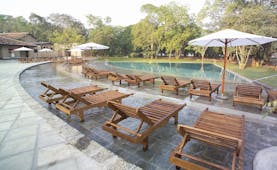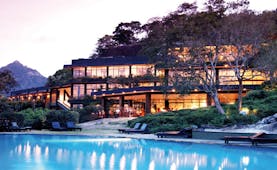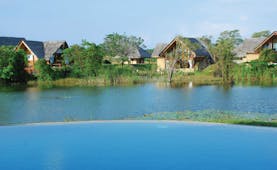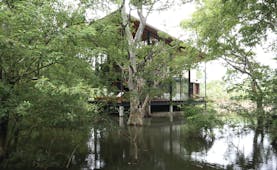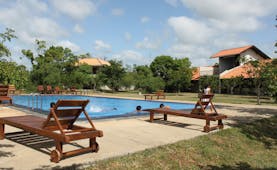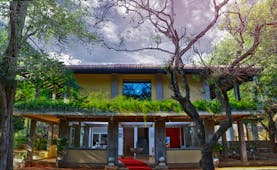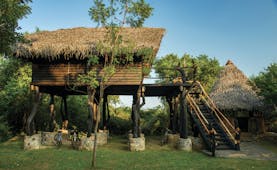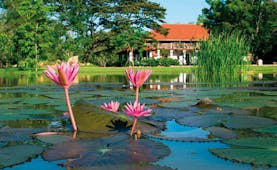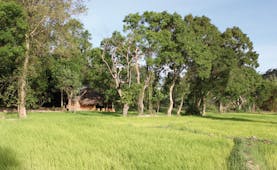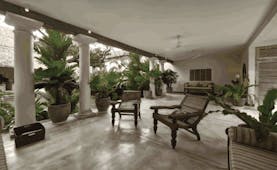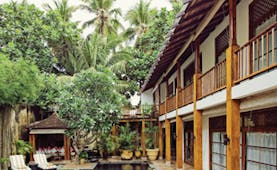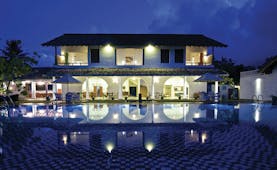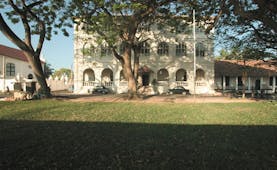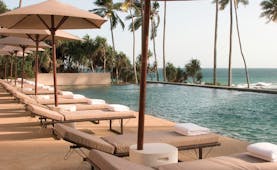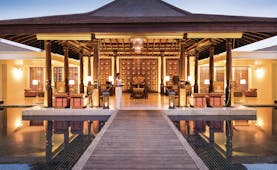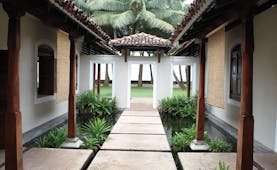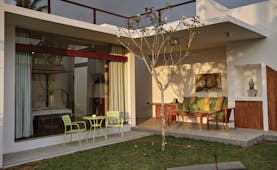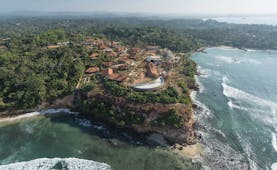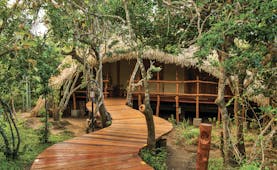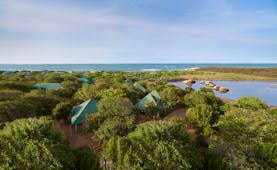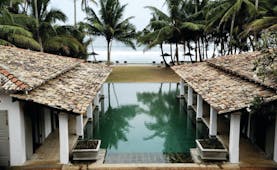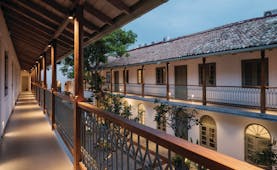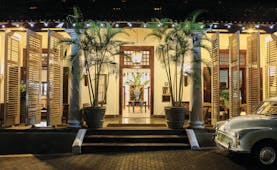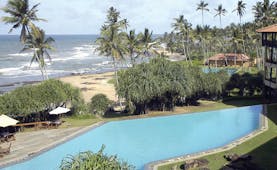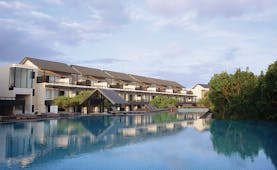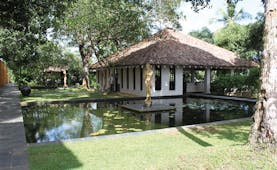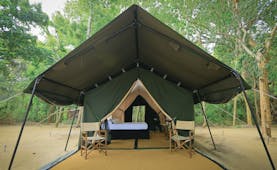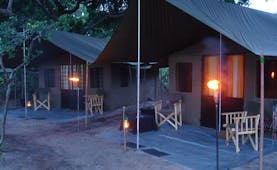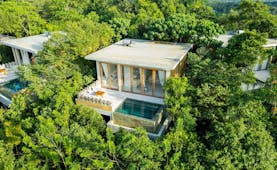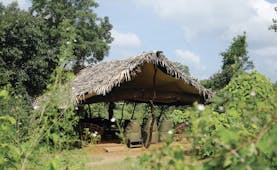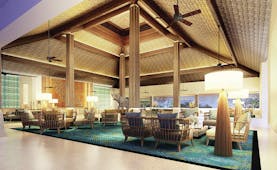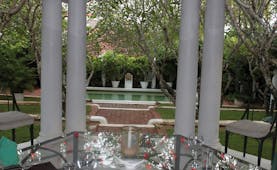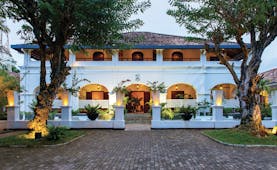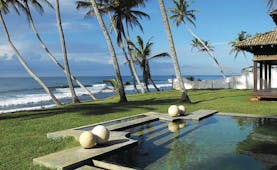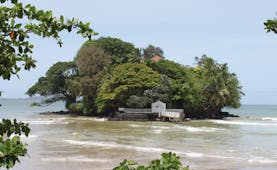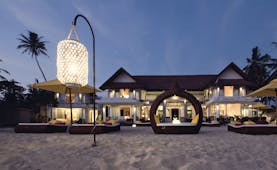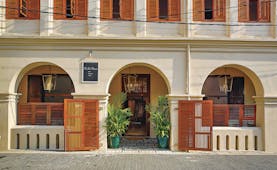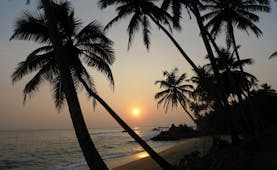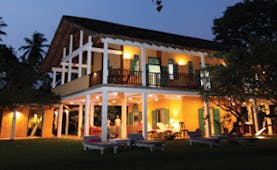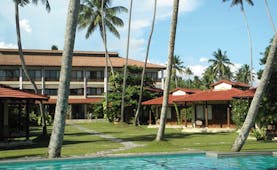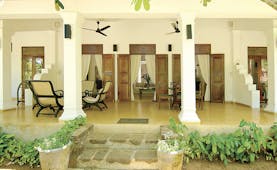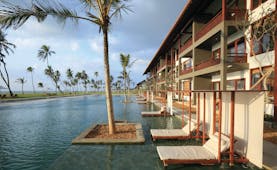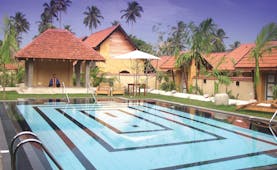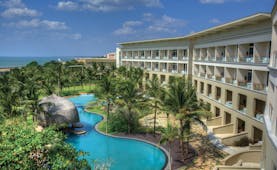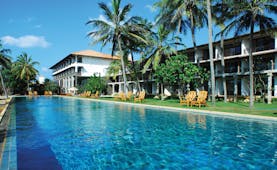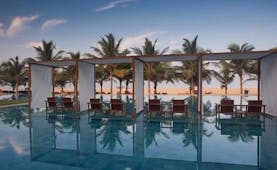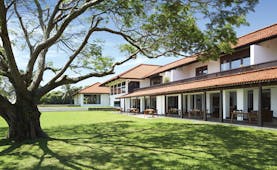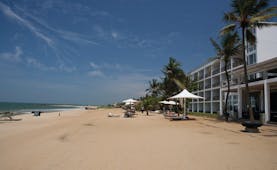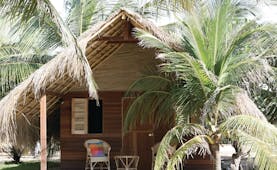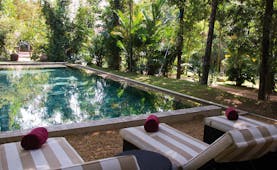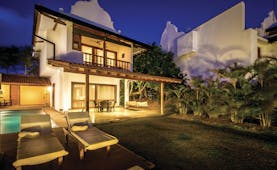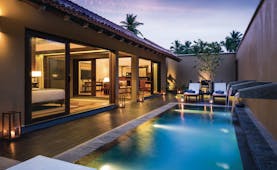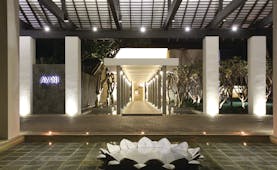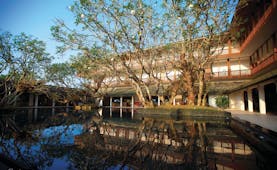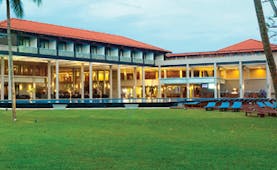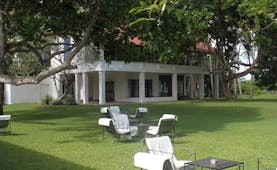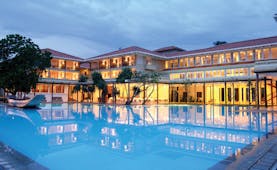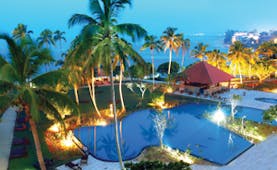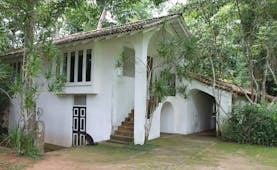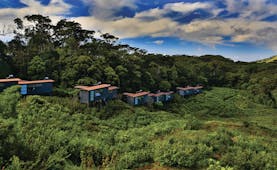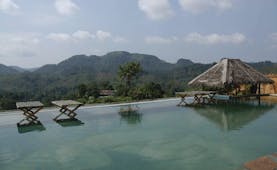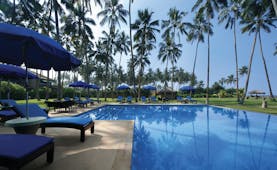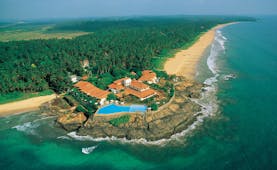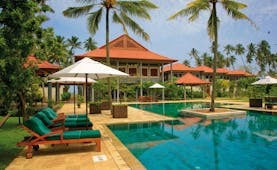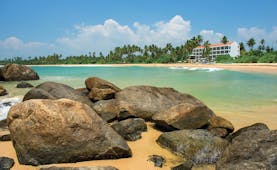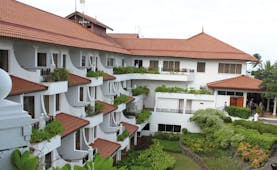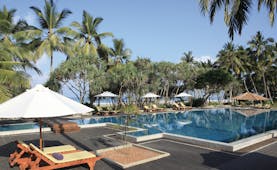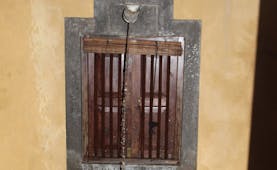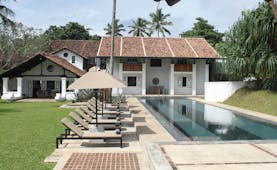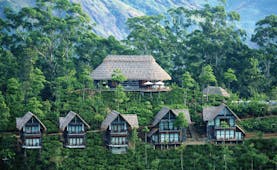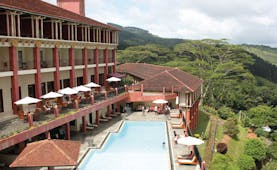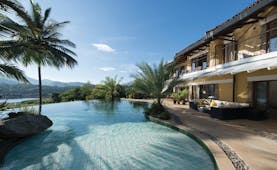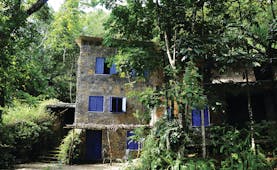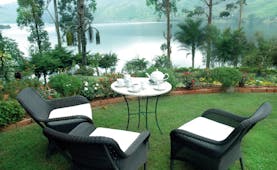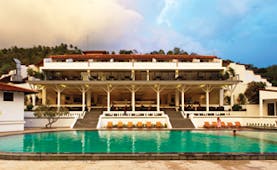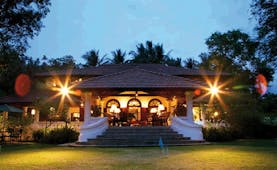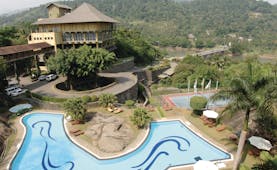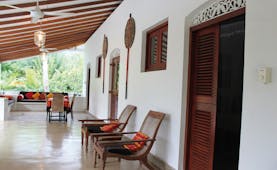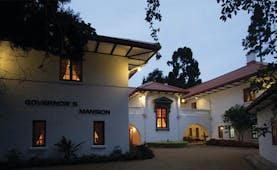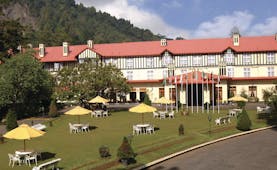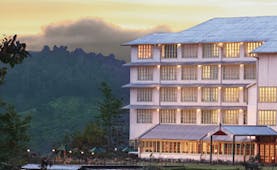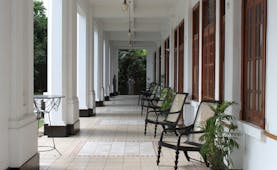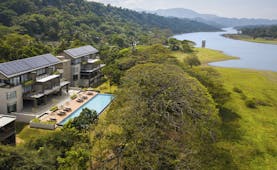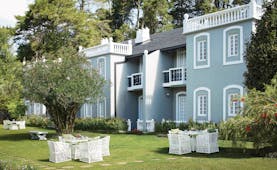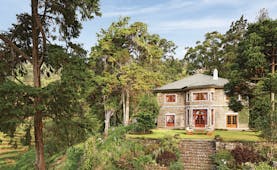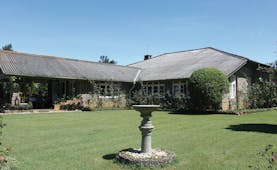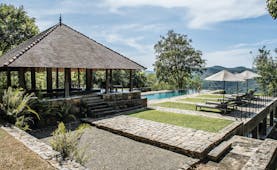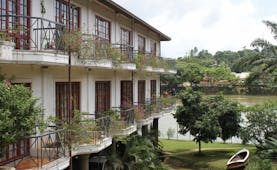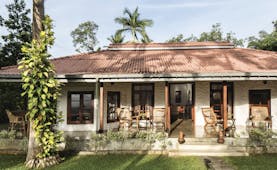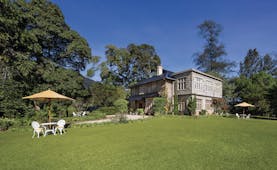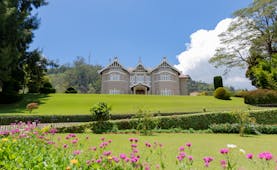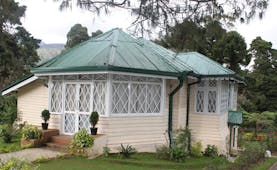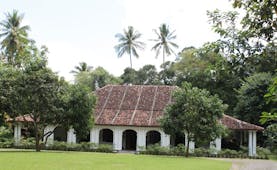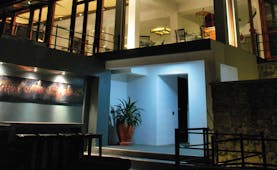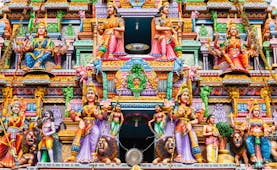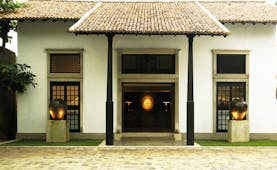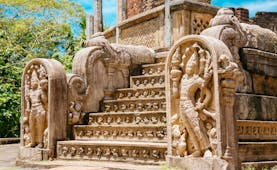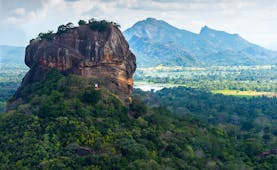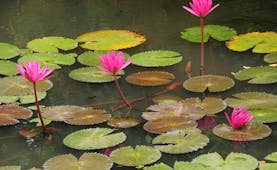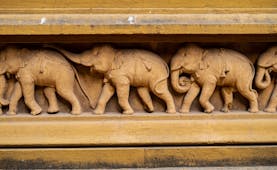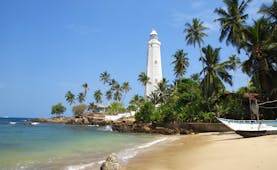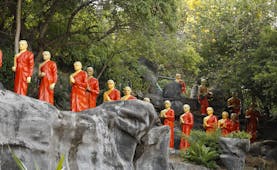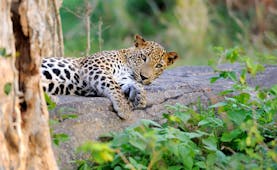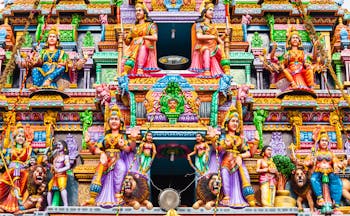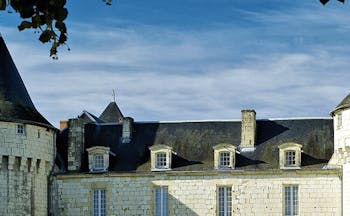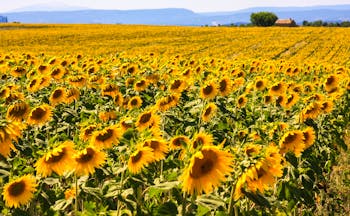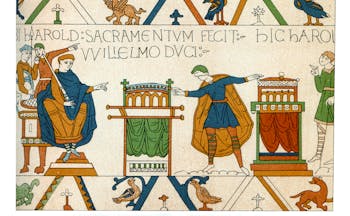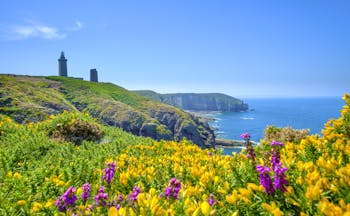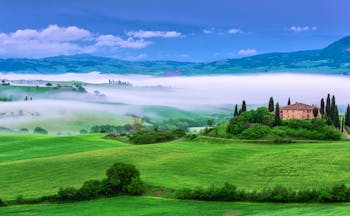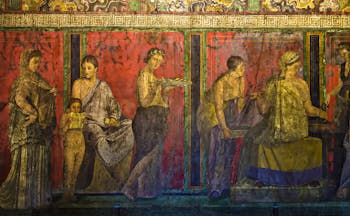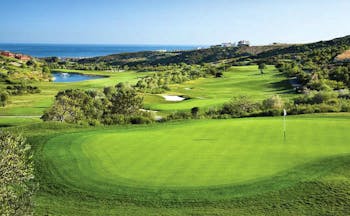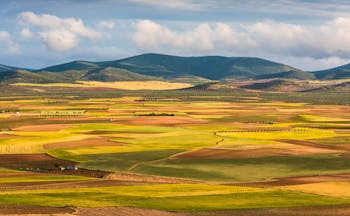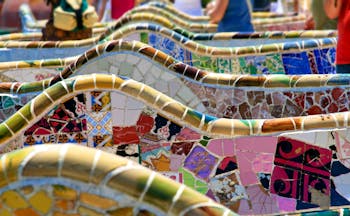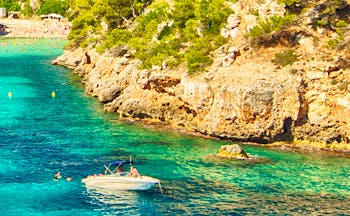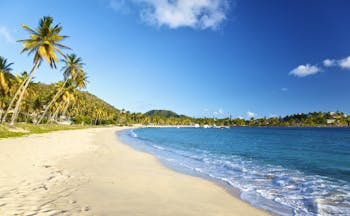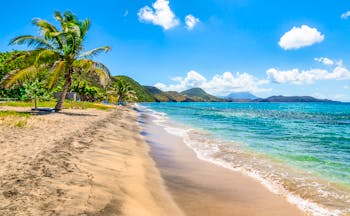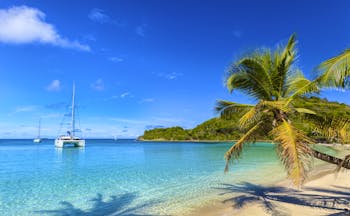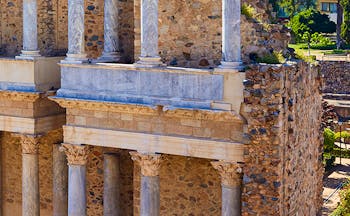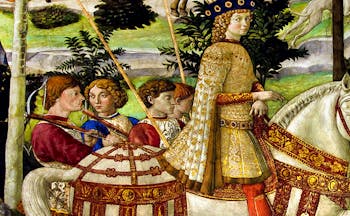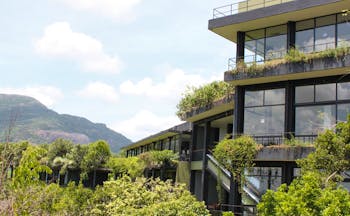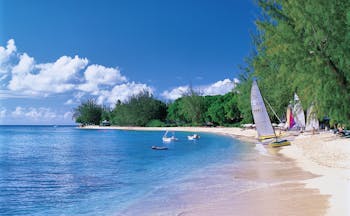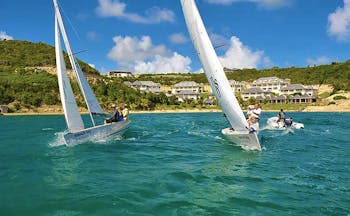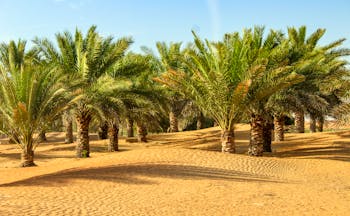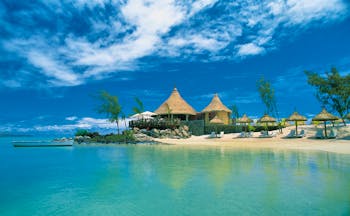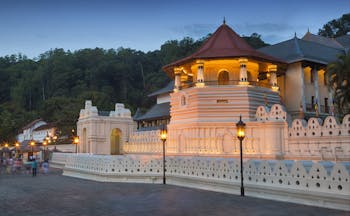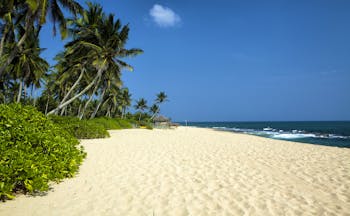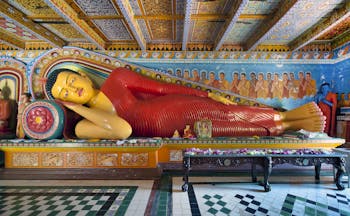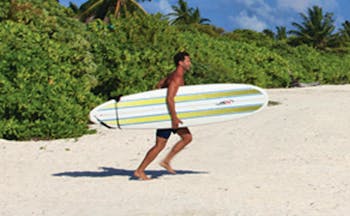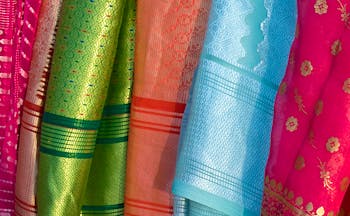Luxury bespoke holidays and tours to Amaya Beach Resort & Spa, Passikudah
Facts in brief
Official star rating 4
Location On the beach beside Passikudah Bay, approximately 85-miles from Dambulla
Annual opening All year
Closest airport Colombo International Airport
Distance from airport Colombo International Airport, 166 miles
Hotel facilities and services
Two restaurants, Bar, In-room dining, Outdoor swimming pool, Spa, Fitness centre, Tour information, 24-hour room service, Free WiFi, Babysitting service, Kids' Club, Teen Club, Children's pool, Medical services, Laundry.
Complimentary watersports
Beach activities.
Chargeable watersports
Windsurfing, Kayaking, Snorkelling, Diving.
Out and about nearby
Beaches, Coastal village of Kalkudah, Hindu temple and village market, Canoe rides along the lagoon and mangroves, Polonnaruwa in cultural triangle.
Absolutely loved it. Bespoke sense of the trip is very good. Very pleasant and efficient service.Mrs H, Sep 2023
Holiday price guide Sample prices are per person based on two people sharing a Superior room for 7 nights
From about
£1,390
Holiday Code EXH1613J
The prices displayed here are a guide only. Each holiday price will be tailor-made at the time of booking to reflect all actual costs including up-to-date special offers.
Call us on 01392 441245
Luxury bespoke holidays and tours to Amaya Beach Resort & Spa, Passikudah
Room descriptions
Amaya Beach Resort & Spa has 125 rooms and suites with air conditioning, LCD TV with satellite channels, tea and coffee facilities, in-room safe, hairdryer, IDD telephone, minibar, complimentary newspaper.
Absolutely loved it. Bespoke sense of the trip is very good. Very pleasant and efficient service.Mrs H, Sep 2023
Holiday price guide Sample prices are per person based on two people sharing a Superior room for 7 nights
From about
£1,390
Holiday Code EXH1613J
The prices displayed here are a guide only. Each holiday price will be tailor-made at the time of booking to reflect all actual costs including up-to-date special offers.
Call us on 01392 441245
Luxury bespoke holidays and tours to Amaya Beach Resort & Spa, Passikudah
Additional information
Children: Children up to 12 years stay free of charge on a bed and breakfast basis when sharing parents' bedroom on existing bedding. Children aged 12-16 may stay at reduced rate on existing bedding. Kids' Club Camp Safari is available for 4-9 year olds and a teens' club is also available.
Absolutely loved it. Bespoke sense of the trip is very good. Very pleasant and efficient service.Mrs H, Sep 2023
Holiday price guide Sample prices are per person based on two people sharing a Superior room for 7 nights
From about
£1,390
Holiday Code EXH1613J
The prices displayed here are a guide only. Each holiday price will be tailor-made at the time of booking to reflect all actual costs including up-to-date special offers.
Call us on 01392 441245
Luxury bespoke holidays and tours to Amaya Beach Resort & Spa, Passikudah
About North and north east
An Expressions tailor-made holiday to the north region of Sri Lanka allows travellers to explore a less popular region of the beautiful and diverse country. Strewn with Hindu temples and colonial gems, with long white beaches, mangrove lagoons and spectacular snorkelling, Sri Lanka’s far north and eastern coast has been denied to tourists by years of unrest, but with peace restored and hotels reopening, the region now welcomes visitors with a warmth and enthusiasm kindled by decades of isolation. We are thrilled to be adding this fabulous region to our Sri Lanka programme. Marooned at the very northern tip of Sri Lanka on a peninsula that reaches out both physically and culturally towards India’s Tamil south only 50-odd miles across the Palk Strait, Jaffna is the capital of the north, bustling again after years of reluctant quiet. An utterly intriguing city, Jaffna is littered with intriguing glimpses of its turbulent past, a place where Anglican churches and cathedrals all but rub shoulders with Hindu temples and mosques. Bursting with colour, the city centre has recaptured its joyous buzz, with the cricket games played on dusty maidens and the roadside market stalls groaning beneath towers of mangoes emblematic of the city’s rebirth. Down the east coast, Trincomalee, or Trinco as it is affectionately known in these parts, is a pretty harbour town still echoing a thriving colonial past. Increasingly known as a whale-watching and diving destination, sperm and blue whales come into the bay through deep underwater canyons, Trinco is also the gateway to a string of spectacular, palm-fringed beaches to its south. Of these, the remarkably undeveloped but achingly beautiful Passikudah is perhaps our favourite, and lying only 40 miles east of Polonnaruwa, it offers a stunning beach-extension to Sri Lanka’s magnificent Cultural Triangle.
Highlights of the north east region of Sri Lanka
The capital city of Sri Lanka’s Northern Province, Jaffna, is quietly re-emerging from its imposed civil-war stance as hub of the Tamil rebellion. Although visual scars of the fighting still remain, there are a number of treasures to seek out, not least the lively bazaar where gold and beautiful Indian saris make for a perfect purchase. Once home to many rare and historical manuscripts relating to the history of ancient Sri Lanka, the Jaffna Library was ravaged by fire in the 1980s at the height of the unrest, with many ancient books subsequently lost ad infinitum. Reopened in 2003, the library is today watched over by Saraswati, the Hindu goddess of learning. One of the first parts of the islands conquered by the Portuguese and Dutch colonials, Jaffna Fort was built in 1618 by the Portuguese. Extended by the Dutch in the late 18th century to facilitate trading, the fort has until recent times been the battleground between the LTTE and the Sri Lankan army. Homages to the breadth of religious persuasion in Jaffna are in evidence at every turn, from the architectural Italianate beauty of Anglican St James’ Church and the quirkily colourful Jummah Mosque to the Nallur Kandaswamy Temple, one of the most impressive and significant Hindu Temples on the peninsula, dedicated to Lord Muruga. The Jaffna Peninsula Connected to mainland Sri Lanka by a narrow stretch of land occupied by the Chundikkulam Bird Sanctuary and the Elephant Pass causeway, this low-lying peninsula, much of it covered in shallow lagoons, is renowned for its intensive agricultural programme – mangoes, potatoes, onions, chillies and millet are its principal crops – and palmyrah trees, a taller and rather starker version of the southern coconut palm, derived from which is toddy, the local brew. The peninsula boasts a number of authentic and unspoilt beaches which are quieter and significantly less touristy than those further south. The kaleidoscopic Nagapoosani Temple and its imposing five-headed cobra is a must-see, with Hindu worshippers flocking to this ancient shrine built by the ancient Naga peoples of Sri Lanka, worshippers of the snake god. North of Jaffna meanwhile, about halfway to Kankesanturai, you’ll encounter 100 miniature dagobas, dome-shaped shrines said to contain the relics of Buddha and Buddhist saints and thought to be over 2000 years old.
The islands west of Jaffna
Of the many islands lying off the west coast of Jaffna, a number are worth singling out for their beauty and cultural treasures. Three of the major islands – Kayts, Karaitivu, where you’ll find Casuarina Beach, the finest on the peninsula, and Punkudutivu – are joined to the Jaffna peninsula by causeway, with the outlying islands accessible by boat. As the infrastructure in this part of the island develops, be prepared for a rather adventurous journey of discovery. Nainativu (Haarlem) is renowned as a pilgrimage destination largely due to its ancient Buddhist connections, the brilliant white Nagadeepa Purana Viharaya acting as the focal point for those seeking to pay respectful homage. The island also has a strong Hindu presence and its riotously colourful temple complex of Sri Naga Pooshani Amman Kovil is a sight to behold, the architectural detail simply breathtaking. Named after the Dutch town of the same name, Delft (Neduntivu) is an island of windswept beauty where remnants of Portuguese and Dutch influence remain, wild ponies roam and the architecture comprises huge chunks of coral sourced directly from the land. To the west of the island are the remains of a thousand-year-old ancient temple from the Chola dynasty, whilst the garrison fort attracts interest for its geological composition and history. Affectionately known as ‘Trinco’, Trincomalee is a deep-water port, described by Nelson as one of the finest in the world, and has been the target of many a colonial battle in its long history. The city itself is a melting pot of Tamil, Sinhalese and Muslim cultures and a few hours can easily be passed exploring the main sights including the thriving market, Fort Frederick, dating back to the 16th century, and Swarmi Rock, better known as Lover’s Leap following the legendary tale of a jilted lover throwing herself to a watery grave. Here you’ll find the revered Koneswaram Kovilis temple, a pilgrimage site for many who ward away evil spirits by smashing coconuts. Outside the city, you’ll find the legendary hot springs of Kanniya, known for their therapeutic properties and believed to have been created by the god, Vishnu, the ancient Velgam Vehera temple dating back to 2 A.D and the Thiriyai Vata-de-ge monument, carved with Bhyana Buddhas and Bodhisattva images. Whale watching for blue whale is also a popular east-coast attraction from May to October. Beaches of the east coast Acclaimed as the finest stretch of coastline on Sri Lanka’s eastern shores, Nilaveli Beach stretches 15km from Uppuveli, 5km from Trincomalee, all the way up to Nilaveli itself. Boasting white sands and crystal-clear waters, it naturally acts as a honeypot for sun worshippers far and wide. Pigeon Island National Park lies just 2km off the coast and is renowned as one of Sri Lanka’s best marine reserves and ecosystems (visits only possible between the months of May to October). Further south, unspoilt Passikudah Beach is protected from the ocean in its own tranquil bay and provides a picture-postcard image of heaven on earth, its shallow shoreline the perfect spot for a leisurely meander, its coral-rich waters popular for diving.
Climate of the north east region
Outside of the northeast monsoon season (December to March, but the wettest months being October to January) which accounts for more than 90% of the annual rainfall, the Northern and Eastern Provinces tend to offer a dry heat throughout the rest of the year ranging from 26° C to 33° C.

